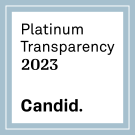August 2022
HDC Coalition Comment on Seattle Comprehensive Plan Update – Expand Scope for Abundant and Affordable Homes
We, the undersigned organizations, represent a coalition committed to advancing housing affordability and addressing climate change through Seattle’s Comprehensive Plan update, including affordable housing developers and operators, environmental advocates, climate activists, and grassroots housing organizers. We thank you for the opportunity to comment on the scope of the environmental impact statement (EIS) for the One Seattle Plan 2024 Comprehensive Plan update. It is essential that the City analyzes a full range of growth alternatives in the EIS. We urge you to expand the scope of analysis of each of the alternative growth strategies and to advance a new transformative Alternative 6, to provide as much flexibility to build as many homes as possible. Read more.
This Comprehensive Plan update is a once-in-a-decade opportunity for Seattle to lead the region by reforming land use, increasing density, and allowing for mixed uses in neighborhoods. At this distinctive moment in time, the urgency of the city’s affordable housing crisis is combined with a growing climate crisis and the disturbing reality of persisting inequities. We cannot ignore the interconnectedness that must bind our efforts inextricably on housing, and climate action. Read more.
We have an exacerbated housing crisis; far too many of our neighbors sleep unsheltered, struggle to afford rent, or have been displaced from their communities, all because of how expensive homes in our city are. Simply put, we have a shortage of homes, and we need to build more of them. We need more affordable homes, more sustainable homes, more homes to rent and to own, and more middle homes, apartments, and corner stores throughout our city. Read more.
We also face a climate crisis driven by transportation as overwhelmingly our region’s top source of climate emissions, accounting for a whopping two-thirds. Car-dependent sprawl is not consistent with our climate goals or a sustainable future. As the center city of this region, Seattle must lead in welcoming sustainable land use patterns. Per capita emissions are lower in Seattle due to better access to transit, jobs, and walkable neighborhoods. By not welcoming housing growth in its borders, Seattle forces it to the suburban fringe, where residents are locked into car dependency and growth jeopardizes forests and farms. Read more.
Of the options currently drafted, Alternative 5 is the only alternative to make a major positive impact on Seattle’s housing costs by allowing for more housing growth to meet demand. Per the City’s analysis, by promoting a greater range of rental and ownership housing, the Combined Growth Strategy would address past underproduction of housing and rising costs and support complete neighborhoods across the city. It furthers climate goals by allowing more people to live in walkable, transit-rich communities near jobs and amenities, and could help create transit-supporting densities throughout Neighborhood Residential zones. And finally, it goes furthest among the five drafted alternatives to correct the racial inequities of historically exclusionary zoning policies. Read more.
In addition to advancing Alternative 5, it is essential that all the growth strategies studied include as much flexibility to increase housing supply, diversity, and affordability as possible. A new Alternative 6, should expand on the Combined Growth Strategy with policies to create abundant, affordable housing throughout the entirety of Seattle. Read more.


